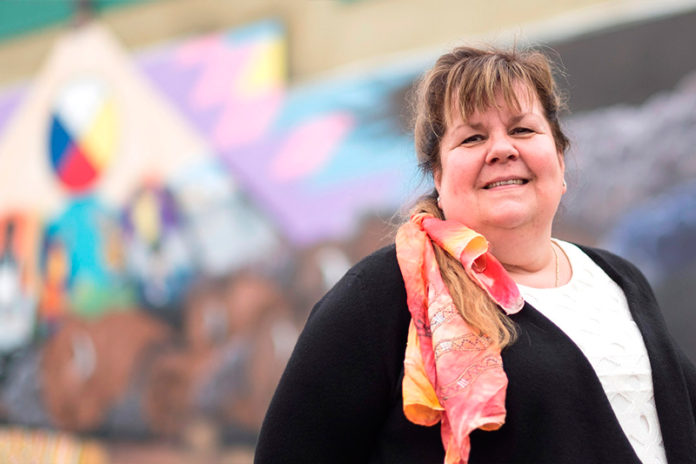
A University of Saskatchewan researcher has received funding that will help her team explore a pair of projects studying issues facing Indigenous women diagnosed with HIV.
Dr. Alexandra King, the Cameco chair in Indigenous health, is leading the two projects. One is studying he potential benefits of peer support for Indigenous women who have HIV or hepatitis C, and the other examining how to improve health and wellness in older Indigenous women living with HIV.
Saskatchewan has the highest rate of HIV in Canada, a rate 2.3 times higher the national average. According to a University of Saskatchewan press release, HIV and hepatitis disproportionately affect Indigenous peoples, particularly Indigenous women.
According to King, her team’s research project examining health outcomes for older Indigenous women is focusing on their particular needs as they age with the disease.
While the prognosis for someone with HIV in today’s society is pretty good, it wasn’t always that way. In the 1990s, HIV would often lead to AIDS and then death for many people, King said. The first treatments on the market were “really horrible” she said, and caused problems for people themselves.
“Now you have people who are in their 50s and 60s who have been living with the disease for 20, 30 years or even longer than that,” she said.
“They’re been through a lot of this early history and drug development. It’s not everybody, but now they’re at a point where they tend to have a lot of premature morbidity and mortality, and increase in disease as well as the HIV itself.”
Anyone who went through that period of time with HIV is at risk of osteoporosis, diabetes or increased risk of heart attack, and that’s one of the “hot topics” in HIV research, King said.
“Indigenous people would be the same as non-Indigenous people in terms of some of those risk factors or morbidity. But where things might be different s that, first of all, socially, economically, Indigenous people tend to be a little worse off. If you haven’t had a good income, good education and so on, being older and living with all of these diseases can be even more challenging.”
The answer for some people, King said, comes down to culture and spirituality. Through the study, King’s team will engage with older Indigenous women living with HIV to create and implement a wellness pilot project based on their self-defined needs in five communities n Saskatchewan and British Columbia.
The other project also involves looking at Indigenous women and HIV, but without the age restriction. That is taking a look at how to engage with them in their care and other systems.
“It’s a question of getting them to the medical clinics, but also, sometimes, we need to be dealing with social supports and other issues,” King said.
“Housing support, or income support or finding employment – There are a whole bunch of different things that go into what somebody might need to make them healthy. What we find is that people have already walked that path … know a lot about that, and have a lot of good insights.”
King said the wisdom that comes from those experiences can be “quite profound.”
That $1.39 million study will examine the role of peer navigator support to help Indigenous women living with HIV or hepatitis to connect with, navigate and receive support from the health care system.
According to a press release, many Indigenous communities put value on wisdom gained through lived experience, and peer navigators can relate to patients in ways doctors, nurses and other health professionals can’t. Sometimes, that means helping people connect to their spiritual and cultural backgrounds.
“For a lot of us Indigenous people, the whole process of colonization has resulted in a disconnection from culture,” King said.
‘Some of us are really connected with our culture in a really strong way, and others may not be at all. Depending on where people are in their own journey, the notion of being able to connect with culture and community and start understanding about spirituality can be really quite profound for somebody. That’ something that, again, people with lived experience who have walked this path can help make those connections to a community … and help people figure out the way they want to manage their health and wellness.”
The funding for the studies is coming from The Canadian Institutes of Health Research (CIHR). A total of $2.4 million was awarded for four research projects. The funding will pay for 14 staff positions, six graduate students and one post-doctoral fellow.
King thanked CIHR and the University of Saskatchewan.
“I’m really grateful to the team I’m working with and the university of Saskatchewan. They have been implementing different processes to help researchers become more successful in our research grants,” she said.

